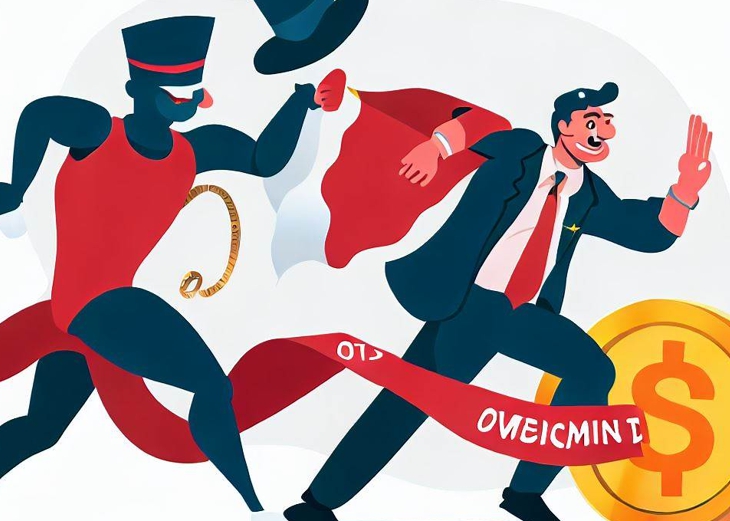What does Certification 18 and 18A have to do with athletes' participation in the management of sports entities, access to public resources, mandatory documentation and management focused on transparency and good governance?
Introduction
The governance of sports entities, both in conventional sports and esports, is essential to ensure legitimacy, transparency, and institutional sustainability . The 1988 Federal Constitution recognizes sport as a right for all (art. 217), establishing the State's responsibility to promote sports practices, training, and professional development.
Brazilian legislation, starting with the Pelé Law (Law No. 9,615/1998) and more recently the General Sports Law (Law No. 14,597/2023) , establishes rules for the organization and certification of sports entities, including the mandatory participation of athletes in decision-making bodies as a condition for accessing federal and state public resources.
Although each sport has its own specificities, the essence of good sports governance is universal and can be applied to both an Olympic confederation and an entity representing esports, such as CBDEL – Brazilian Confederation of Electronic Sports (we will use this entity to exemplify the content of this article within the scope of esports).
The integration of esports and traditional sports into the National Sports System (SINESP) allows for the standardization of governance practices, strengthening the legitimacy of entities and guaranteeing the protection of athletes, in addition to ensuring that public resources are applied efficiently and transparently.
Principles of Good Governance in Sport
Good governance is not just a legal requirement; it embodies core values that guide the management and operations of entities:
- Transparency Clear and periodic accountability; Publication of financial statements and activity reports; Effective control over the use of public and private resources.
- Integrity and ethics: Prevention of fraud, match-fixing, and conflicts of interest; Ethical conduct in relationships with athletes, clubs, sponsors, and government agencies.
- Democracy and participation Inclusion of athletes, managers and other stakeholders in decision-making; Statutory structure that respects proportionality and representation.
- Sustainability and strategic planning Responsible management of public and private resources; Medium- and long-term financial and operational planning; Revenue diversification to reduce dependence on public funds.
- Operational efficiency Standardized and auditable administrative processes; Rational application of public funds, ensuring social and sporting impact;
Integration of Esports and Conventional Sports
Despite cultural and structural differences, both sports share the same legal governance framework. The integration of esports and conventional sports demonstrates that the principles of good governance are universal:
- CBDEL , by certifying itself in accordance with articles 18 and 18-A, integrates esports into SINESP , guaranteeing active participation of athletes, transparency and access to public resources ;
- This alignment strengthens credibility with the State and private partners , allowing expansion and professionalization.
- Regulatory framework: Esports, via CBDEL, adopt practices similar to those of traditional confederations, respecting articles 18 and 18-A;
- Athlete participation: Guaranteed in assemblies and councils, allowing decisions on management, resources and public policies to include the perspective of competitors;
- Management of public resources: Ensures that federal, state, or municipal funds are applied in a transparent, proportional, and efficient manner, reinforcing the social and educational impact of sport;
- Institutional credibility: Good practices strengthen the trust of sponsors, governments, and society, enabling greater sustainability and professionalization.
Athlete Participation and Access to Public Resources
One of the most sensitive points in current sports legislation is the conditions for access to public resources . According to the General Sports Law , entities seeking financial support from the Union—whether through the Sports Incentive Law, partnerships, state-owned sponsorships, transfers from the Brazilian Olympic Committee (COB), Brazilian Football Confederation (CPB), or lottery funds — can only do so if they guarantee the effective participation of athletes in their decision-making and governance bodies .
This participation must respect proportionality :
- Athletes must have reserved seats in assemblies and councils, with the right to speak and vote.
- The minimum percentage is established by law and regulations, but it is up to the entities' statutes to detail the enforcement mechanisms.
- This model seeks to balance representation between managers, federations and athletes, ensuring that the main protagonists — the athletes — are also jointly responsible for institutional decisions.
Conversely, entities that choose not to access public resources are not required to comply with this requirement . This safeguards the private autonomy of associations, but in practice, larger entities tend to adapt to avoid losing access to essential funding.
The requirement for athletes to participate is not just symbolic: it is directly linked to the condition of access to federal public resources .
I.e:
- If an entity does not intend to receive public resources or tax incentives , it is not obliged to include athletes in its deliberative bodies.
- However, if you wish to participate in the National Sports System (SND) in its entirety and receive state benefits and support, the inclusion of athletes becomes mandatory .
The Legal Structure, Athlete Participation and Institutional Management
Constitutional and Legal Foundations
The 1988 Federal Constitution establishes, in its article 217, that sport is a right for all, with the State being responsible for promoting formal and informal sports practices. This command is materialized in specific legislation, such as the former Pelé Law (Law No. 9,615/1998) and, more recently, the General Sports Law (Law No. 14,597/2023) .
This new law reorganizes the National Sports System, establishing principles of transparency, governance, integrity and social participation , which also apply to esports , when treated within the institutional scope.
National Sports System and Athlete Participation
In articles 18 and 18-A of the General Sports Law , it is established that athletes must participate in the management of sports entities in proportion to their weight in the sport.
This means that:
- Confederations, federations and leagues , such as CBDEL – Brazilian Confederation of Electronic Sports , must include in their statutes mechanisms for the deliberative participation of athletes in assemblies and management bodies.
- Failure to comply with this rule implies loss of access to federal public resources , including direct budgetary funds, sponsorships from state-owned companies, tax waivers via the Sports Incentive Law, and transfers from the COB, CPB and State/Municipal Secretariats when backed by public funds.
In other words, compliance with this requirement is mandatory only for entities wishing to raise public funds . If an entity wishes to act independently, without requesting financial support from the State, it is not required to adopt such rules —although, from the standpoint of institutional legitimacy, it is always recommended.

Public Resources Subject to the 18 and 18A Mandatory
The mandatory participation of athletes in the decision-making process applies to entities that receive:
- Federal, state and municipal budgetary funds allocated to sports.
- Sponsorship resources from state-owned companies (such as Banco do Brasil, Petrobras, Caixa, Eletrobras).
- Resources from the Sports Incentive Law , based on tax exemptions.
- Special sports funds in any sphere.
- Indirect transfers through the Brazilian Olympic Committee (COB), Brazilian Paralympic Committee (CPB), or Ministry of Sports.
Thus, in the case of CBDEL , to receive resources from the Incentive Law or support from state-owned companies, its statutes must comply with the General Sports Law, guaranteeing the presence of athletes in decision-making bodies.
4. Practical Example – CBDEL
CBDEL , as the national esports confederation, is part of this legal and institutional scenario:
- Its statutes must include the participation of athletes in councils and assemblies.
- If it does not do so, it will remain a legitimate entity from a private perspective, but will not be able to access public resources .
- Doing so reinforces its institutional credibility , expands channels of dialogue with the government and civil society, and enables it to participate in public sports policies.

6. Final Considerations
The General Sports Law brought an important milestone: the democratic governance of sports entities, linking access to public resources to the effective participation of athletes in decision-making bodies.
In the example case I use in this article, CBDEL , this means that:
- You can operate freely in the private sector even without this suitability.
- However, if you wish to obtain resources from state-owned companies, the Sports Incentive Law or public funds , you must guarantee a deliberative space for athletes .
- Articles 18 and 18-A and certification link athletes’ participation to access to public resources , making it central to governance;
- Entities that do not seek public resources maintain autonomy, but lose access to benefits and increased legitimacy;
- CBDEL exemplifies how esports can be structured within Brazilian legislation, ensuring participation, transparency , and excellent governance;
- The General Sports Law reinforces this model by prioritizing democratic management, participation and transparency , even though it does not directly regulate the obligation;
- The integration between conventional sports and esports strengthens SINESP , guarantees the athletes' protagonism and raises the level of professionalism and social responsibility of sports as a whole.
This change reflects a global movement: sport and esports are training tools , and their legitimacy depends on transparent, inclusive practices that recognize the centrality of the athlete as a protagonist in the sports system.




